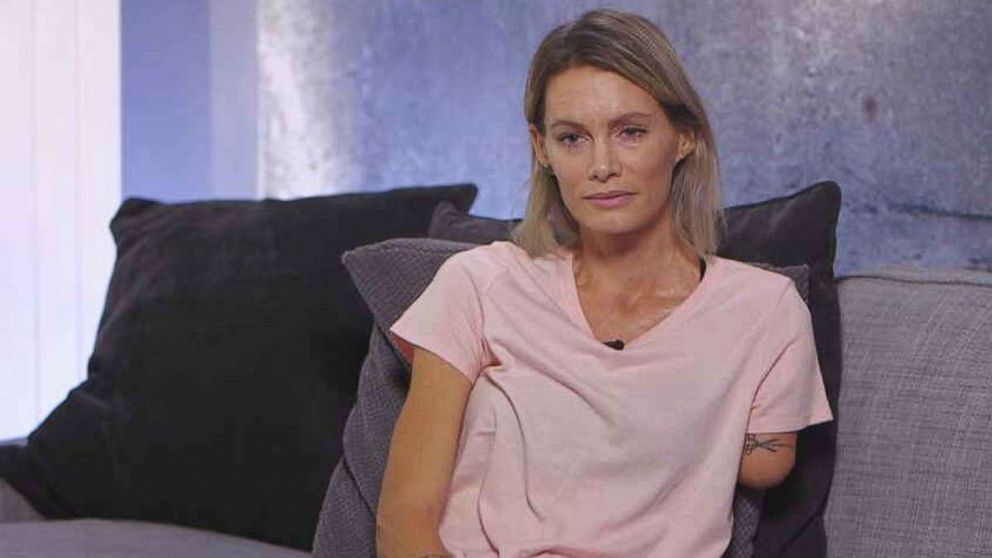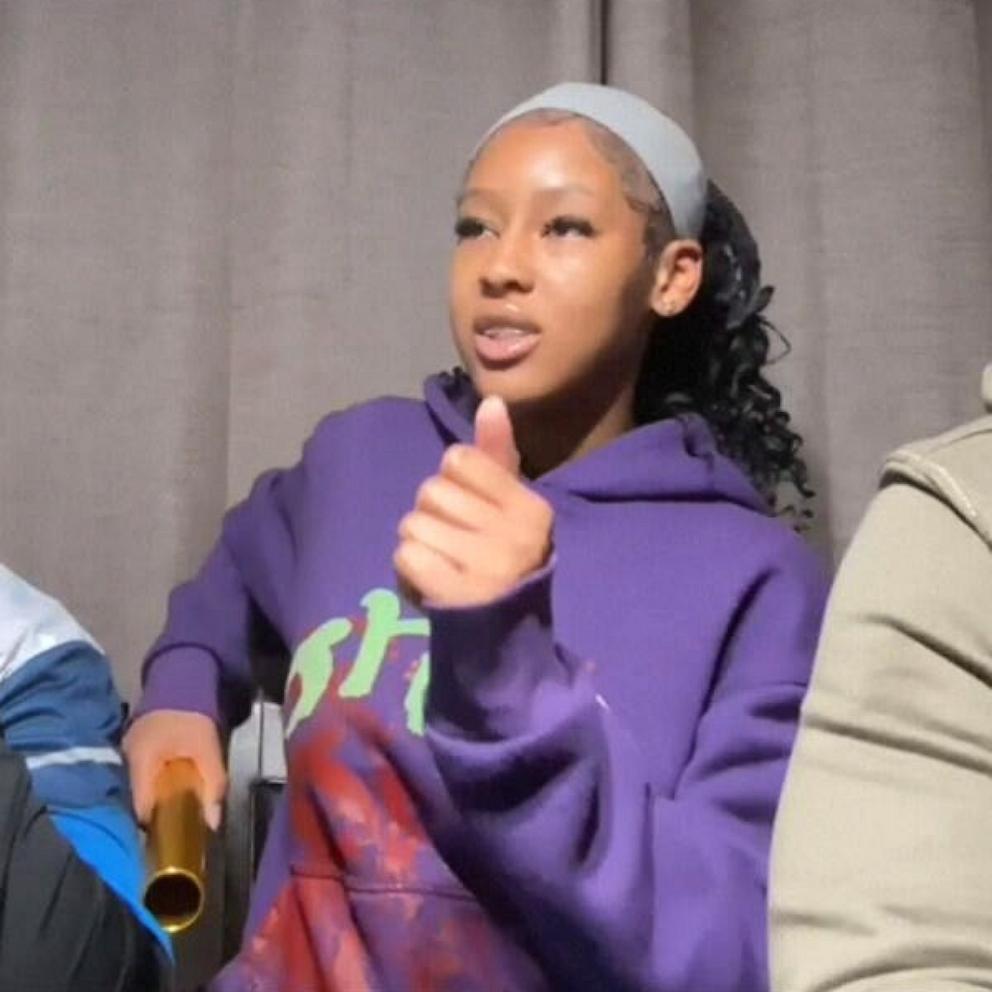'Resident Evil' stunt woman felt abandoned by producers after losing arm
A Hollywood stunt double who lost her arm while filming one of the "Resident Evil" movies said she thought the production company would take care of her, but now she's suing the producers of the film, hoping to make her nightmare the last for stunt workers.
Olivia Jackson sued the producers of "Resident Evil: The Last Chapter" last week, claiming they left her on her own as she racked up medical bills after the career-ending accident.
Jackson has performed in several blockbuster films throughout her career, including "Guardians of the Galaxy," "Mad Max: Fury Road," and "Avengers: Age of Ultron," but she said no film could ever prepare her for the trauma she suffered after the 2015 accident.
"It's something you always hear happening to someone else and you think, 'Oh dear that's horrible,' but you never think its gonna be you," Jackson said in an exclusive interview with "Good Morning America" airing Monday. "I thought the production would take care of me for a number of reasons."
Jackson was performing as a stunt double for Milla Jovovich on "Resident Evil: The Last Chapter" when she was injured in a motorcycle crash that resulted in her arm being amputated after being placed in a medically induced coma.

Jackson said she was initially slated to film a fight scene on the day of the crash, but in a "last-minute change, she was asked to perform a dangerous and technically complex motorcycle scene in adverse weather," according to her lawsuit, which was filed in Los Angeles.
The scene Involved her speeding toward a camera that was supposed to lift over her head before she reached it. But the "haphazardly planned stunt went terribly wrong," the lawsuit said, and Jackson collided with the camera at full speed.
"It went straight into my left arm, my head and my shoulder," Jackson told "GMA." "The next thing I remember, I woke up three weeks later, [after] being in a coma, and then saw my family."
"I had numerous injuries, brain bleed, brain swelling, it hit the left-hand side of my face and all along here was -- it's called de-gloving -- where it's all pulled-back flesh. ... You could see my teeth through my cheek," she added.
Now, unable to work, Jackson says she's still fighting for proper compensation. Her lawsuit, which names producer Jeremy Bolton and producer/director Paul W.S. Anderson as defendants, said the crash was the result of the production team "elevating financial considerations over safety."
She said the movie’s producers misled her into believing that their insurance would cover any potential injuries sustained during on the job. Jackson claims the producers "abandoned" her and took out an insurance policy that only covered $33,000 of her medical expenses. After the accident, she said she was paid $990 in lost earnings despite the film's blockbuster success and gross of more than $300 million.
"They admitted they had very limited insurance, but they promised they would take care of me and make sure I came back to health," Jackson told "GMA." "When they stopped paying for the medical bills I think I was just really hurt and really scared because I was stuck. … I was really hurt and really scared because now I was stuck on my own."
Thankfully, members of the stunt actors community and movie lovers from around the world gathered to raise funds to help her have the surgeries she required, Jackson said.
The lawsuit did not list a specific amount in damages, but Jackson said she's seeking compensation to "take care of myself for the rest of my life and pay for all the extensive medical bills that are ongoing."
She also wants to raise awareness for cases like hers and hopefully inspire actors to be advocates for their own safety.
"I would really like to make the world aware that things like this happen and make sure there is safety and insurance in place for the crews that make these films and give their lives, 16 hours a day, working to make these films," Jackson told "GMA." "A lot of the things with the insurance, those were hidden from me. It's hard really to learn from it, when you sign a contract that says the production has insurance, but you don't really know, every crew member on a film doesn't know to ask them for their insurance papers."
Representatives for Anderson, Bolt and their respective companies did not respond to ABC News' request for comment.



